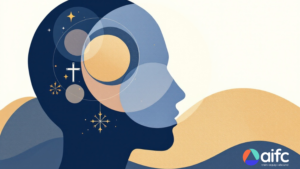Dr John Townsend believes kids who have suffered trauma in the very early stages of childhood are more likely to have their personality affected by it, particularly during their adolescence. He encourages parents to have these children see a mental health professional as early as possible.
Get Help If There Has Been Early Trouble by Dr. John Townsend
”Studies show that seriously negative events between the ages of 2 and 4 (divorce, death of a parent, health issues, bankruptcy, etc.) can have a profound impact on a child, often affecting his or her personality during the teen years. The events may have occurred years ago, but they need to be investigated and, when appropriate, acted on clinically. Here are some ideas to help as a parent.
The past matters. The past is very important to a teen’s health and functioning. This is especially true for the very early years. The younger the child is at the time of the events, the more developmentally vulnerable and fragile his or her personality. It’s like a tree in your backyard during a powerful windstorm. A mature tree, with size, stability and deep roots, is likely to withstand the weather. But a young sapling is in danger of being uprooted.
Time alone does not heal. Often, a parent will think: The bad events are way past. Time healed my child. Actually, this is not true. Time is certainly a necessary ingredient for healing. It takes weeks to heal a broken arm. But other elements are involved in that kind of healing: a cast, medications and physical therapy. Without these, and with just time passing, you are in danger of the broken arm becoming much worse. Your teen may need counselling, support, insight, professional therapy and medications, along with time.
It’s not about healing the past. It’s about healing the character. Parents sometimes hear strange messages from counsellors about healing the past. It is impossible to heal the past because the past is over. We don’t have time machines. But you can heal the damaged character of a teen who was injured in the past. For example, a teen may have lost the ability to trust, make deep emotional attachments, have a stable sense of identity, stay focused on tasks, be in control of emotions, or stand firm against peer pressure and drugs. Those aspects can and must be healed in a good clinical setting.
Look at your teen’s present functioning. If you have observed some of the above struggles, it’s time to take him or her to a trained professional. So often, parents try over and over again to fix their child themselves, and the problem is simply too severe or too chronic. The help is there, with people who have successfully worked with kids much more troubled than yours. The research backs up the helpfulness of seeing a trained professional.
Why not? One thing I always recommend, and one that my wife and I did with our kids, was to take them to an adolescent specialist just to get a professional view, without having any severe symptoms. Our reasoning was the same as what you do when you go to your physician for an annual check-up. You want to catch anything that might be going on and nip it in the bud. We were glad we took these opportunities.”
Be proactive. Better to check things out and get a clean bill of emotional health than to be passive and have your teen suffer later.
By Dr. John Townsend – with permission
Sources
Cloud-Townsend Resources
USA TODAY





Have you thought about becoming a qualified counsellor? It’s a great opportunity to learn how you can extend God's love and grace to the hurting out in the community.
For those who would like to enrol in aifc’s accredited Christian counselling courses we have two intakes per year for courses commencing around the following months:
Enrolment Season - opens approximately 2 months prior to our courses commencing. Enrol online here during our enrolment season.
We also offer two modes of study:
A Master of Counselling course was introduced in 2018.